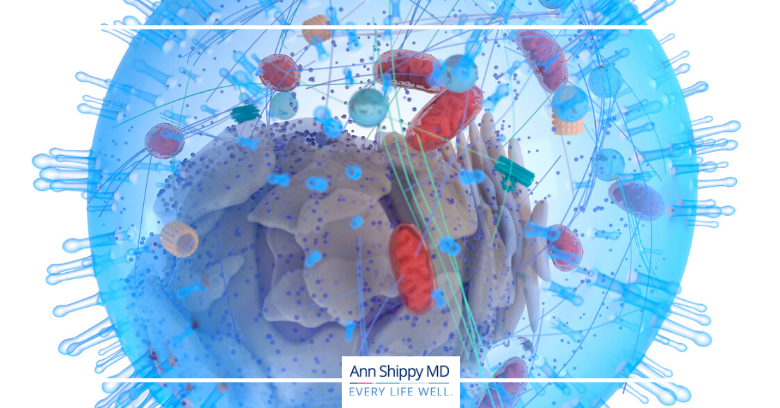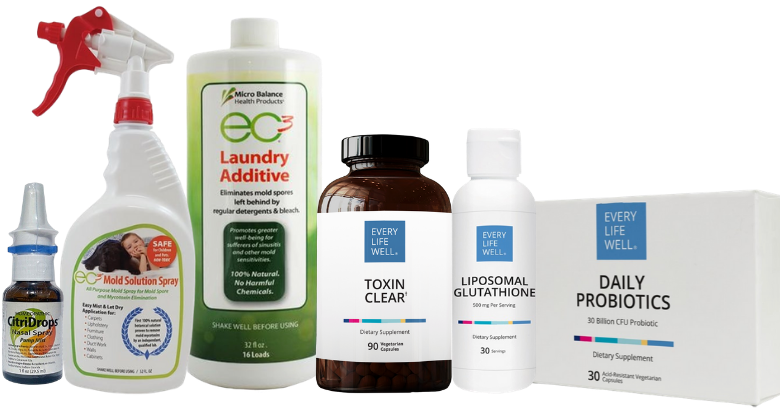Do not underestimate the power of mitochondria!
When the energy of your cells drops, you begin aging and your body becomes at-risk for chronic disease. Each cell has a power generator—you can think of it as a battery—called mitochondria. Mitochondria churn the food you eat into energy to power the cell. Research is showing us that aging and health have a lot to do with how energized and healthy your mitochondria are. The more power they have, the better you function.
Here’s why… mitochondria and the cell nucleus need to communicate often and clearly. In an article in Experience Life, Harvard Medical School biologist David Sinclair explains the nucleus-mitochondria relationship as time takes its toll on cells and we age:
“The aging process, we discovered, is like a married couple. When they are young, they communicate well. But over time, living in close quarters for many years, communication breaks down.” Fortunately, Sinclair notes, “restoring communication solves the problem.”
When it comes to cellular health, we restore communication by using food and supplementation as nutritional therapy. Feeding mitochondria well slows down aging, can prevent metabolic disease, autoimmune disorders, and even cancer– plus guards your overall physical and mental health.
What is the best diet to prevent and heal mitochondrial disease?
A Paleo diet– the right one– feeds your mitochondria. Many people make the mistake of eating Paleo with too much meat and fat, too much sugar, and too many “copycat foods” like Paleo bread. (See my video here, “Are You Making These Paleo & Keto Mistakes?”) The better approach consists of mainly organic vegetables, lean proteins, good fats, and no refined sugars or processed foods. (I also recommend no animal dairy, even ghee.)
Improving your mitochondrial function can result in miraculous recoveries. In just one year, a colleague of mine, Dr. Terry Wahls, completely reversed her multiple sclerosis by eating a specially-designed Paleo diet packed with nutrient-rich vegetables. This strong woman who eventually became bound to a wheelchair now walks and bikes normally again. Her case has been lauded as an example of the incredible power of intelligent, healthy eating.
What can you do to support your mitochondria with supplements?
In my clinic I’ve seen the seen the power of diet and nutritional supplements in reversing many autoimmune conditions, including MS. An optimal Paleo diet feeds the mitochondria and is the best anti-aging diet you can eat. However, adapting a Paleo lifestyle isn’t my only recommendation. There are several nutrients that actually boost and support your mitochondria.*
I encourage many patients to take antioxidants like CoQ10 and alpha lipoic acid – they help mitochondria by destroying free radicals which helps to maintain healthy, well-functioning cells. D-Ribose is another supplement I use because it helps synthesize adenine nucleotides, which make ATP, the primary source of cellular energy.
NAD+ is a product I recommend for it’s overall cellular and anti-aging benefits (available in our Better Brain Bundle here). It also helps regulate and repair genes, helps with sleep, metabolism, and detoxification. Phosphatidylcholine is needed to support healthy cell membrane composition, function and to repair the mitochondrial membrane. You may decide to add all or just a few of these supplements to your regimen. (Our Better Brain Bundle has many of these mentioned here.)
One study found that people with forms of early-onset Parkinson’s disease may benefit from boosting niacin in their diet. Niacin is one of the nutrients that helps replenish unhealthy mitochondria.
And finally, I also recommend PQQ, or pyrroloquinoline quinone. PQQ is an enzyme cofactor possessing antioxidative, neuroprotective, and cardioprotective properties that encourage mitochondrial biogenesis. Mito Restore is a formula that includes PQQ and other beneficial components.
What else can impact mitochondria structure and function?
You also may consider whether your lifestyle or environment could be causing damage to your mitochondria and negatively impacting your health. By making a few positive changes you can have a real impact on the health of your mitochondria. Here are a few easy tips…
- Use natural cleaning products. Harsh chemicals and bleach can enter your body through your skin and through your respiratory system. Use cleansers made with vinegar or baking soda.
- Buy organic vegetables and grass-fed meats whenever possible. Pesticides, antibiotics, chemicals and other toxins are sprayed on or ingested by the food we eat.
- Keep your environment as clean as possible. Take care of any water leaks or damage to your home ensure that there is no toxic mold growing in your home. Consider getting a high quality air filter.
- Drink clean, filtered water.
- Don’t drink or eat from plastic containers.
- Get at least 8-10 hours of sleep daily.
- Meditate, even just 5 minutes a day, to manage stress.
- Exercise daily – even if its a 15-30 minute walk.
These are all simple, healthful changes to make to take care of your mitochondria so they can take care of you.
You may also wish to see our collection of recipes here on my blog!
*These statements have not been evaluated by the Food and Drug Administration and do not constitute medical advice. Products mentioned are not intended to diagnose, treat, cure, or prevent any disease.














